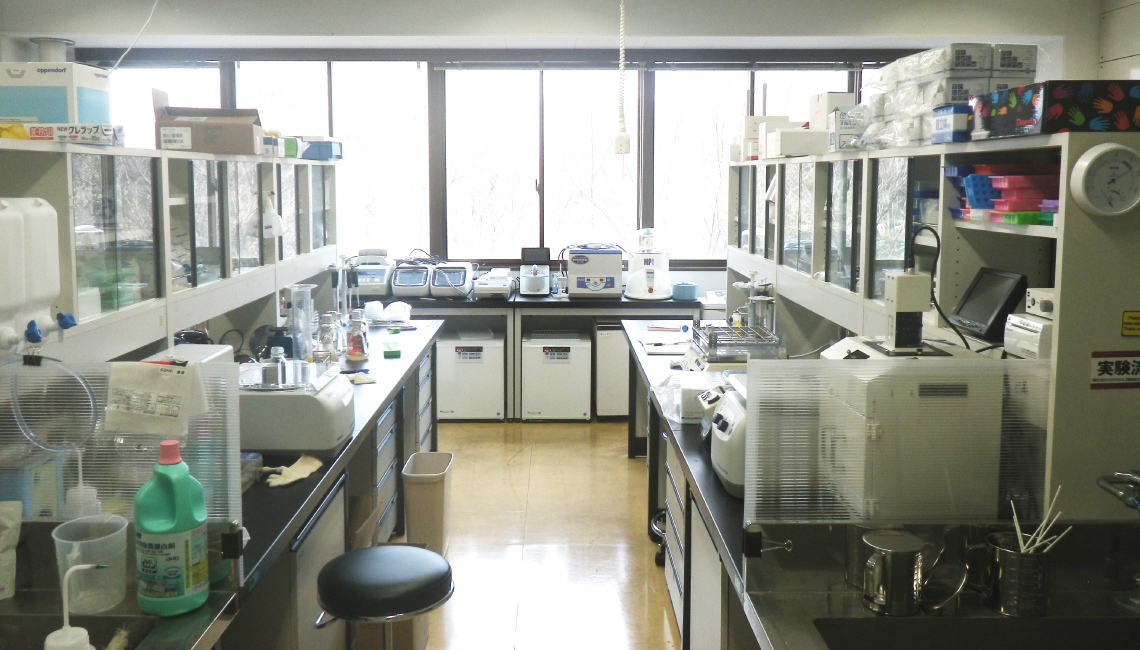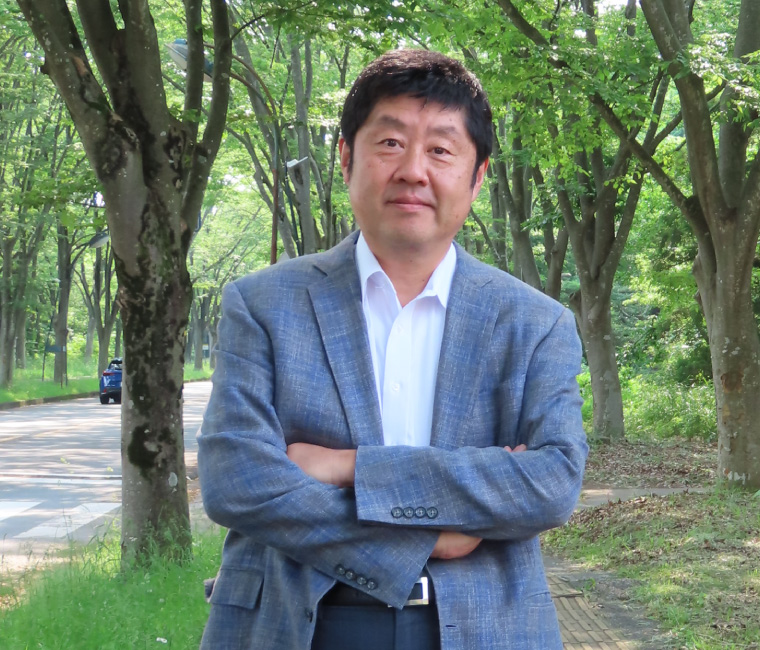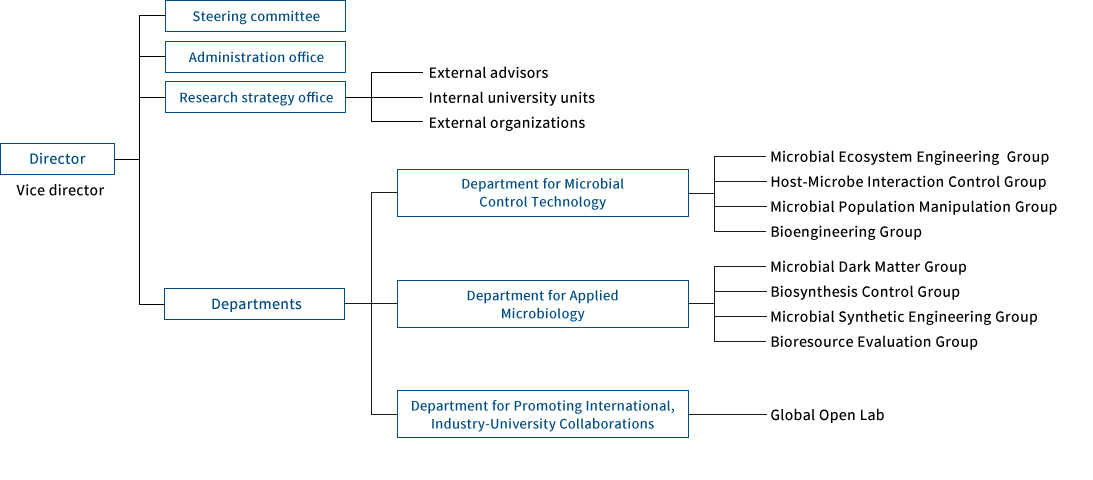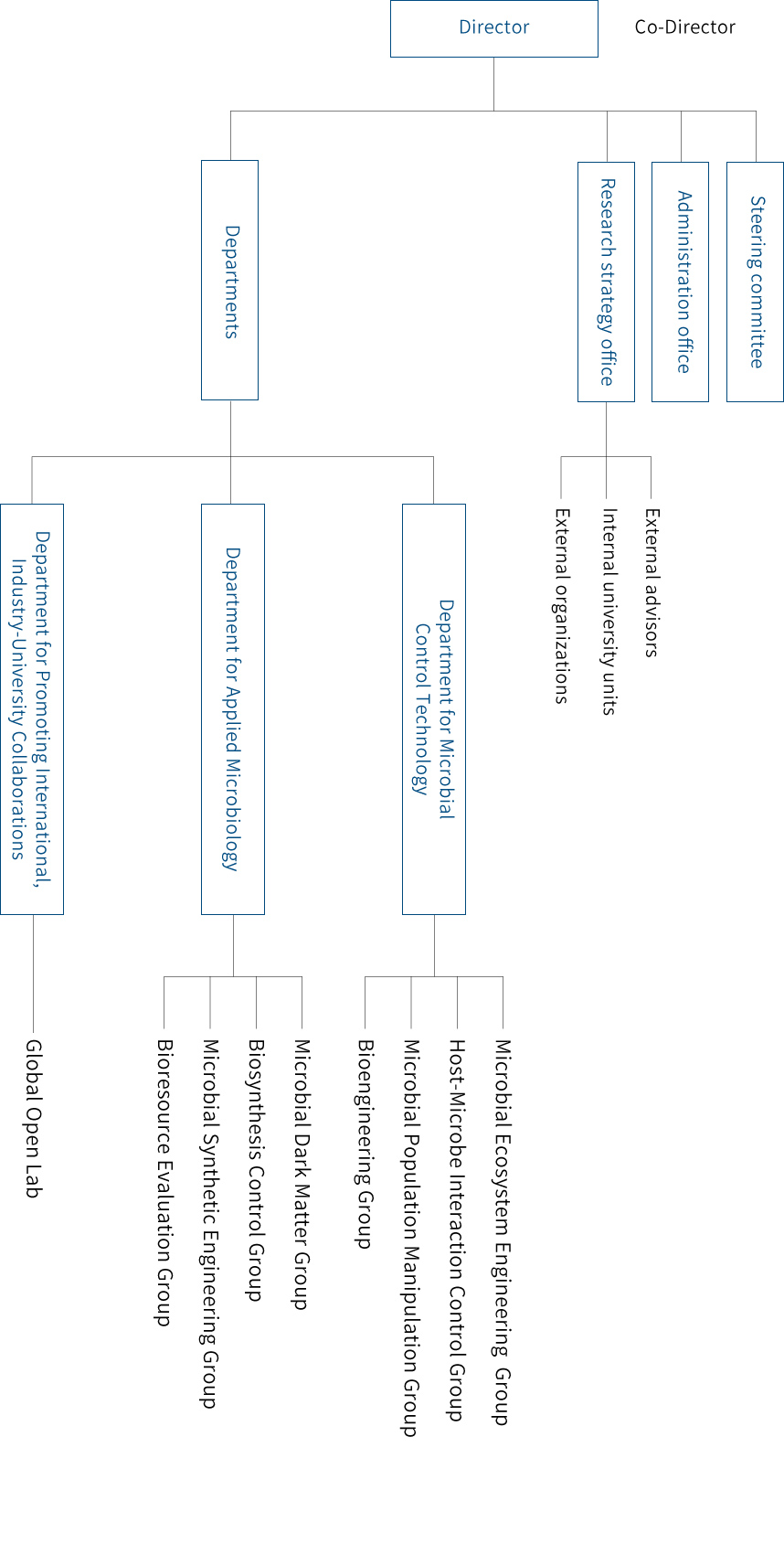About MiCS

Introduction to MiCS
To maintain our ecosystem while resolving issues on a global scale, the role and importance of microorganisms in the solution cannot be overlooked. The Microbiology Research Center for Sustainability is comprised of two departments, that are engaged in research on microorganisms that pushes beyond incremental advancement in areas deeply connected with the global environment and all form of life on Earth.
The accumulation of knowledge related to microbes and application of this research, which integrate the fundamental with the applied sciences, will lead to the development of new technologies for control and utilization of microbes, contribute to the resolution of various global issues, and play a part in the creation of a sustainable society. This Center also aims to contribute to the development of an international resource network that has a bird's-eye view of issues with a distinct microbiological perspective; this will be achieved though a concerted effort to nuture and support interdisciplinary research with researchers from Japan and abroad.
Greetings from the Director

University of Tsukuba
Microbiology Research Center for Sustainability [MiCS]
Faculty of Life and Environmental Sciences
Director Nobuhiko Nomura
‘Microorganisms’ is a general term for creatures so small that they are invisible to the human eye. However, on the earth, the biomass (total amount) of microorganisms is more than 50 times greater than that of animals, including us humans, and as such, their population is much larger than that of ‘animals’. Microorganisms are involved in various material cycles and are deeply involved in the natural environment. For example, waste-water treatment is performed by microorganisms. Furthermore, the number of microorganisms in human intestines is more than 60 trillion, which is more than the number of cells in our own body. We humans are a complex organism (superorganism) hosting microorganisms both inside and on the surface of our bodies. Not only humans, but also insects, birds, fish, and all other animals on the earth are complex organisms (superorganisms) coexisting with microorganisms. Plants also have many diverse microorganisms in their rhizosphere and these microscopic creatures are deeply involved in plant growth. Thus, microorganisms are closely related to plants and animals. In other words, microorganisms are key living organisms for the environment, food, and health. The Research Center for Microbial Sustainability was established to contribute to the environment, food, and health in the 21st century by promoting the control and utilization of microorganisms involved in these areas. It is a group of microbiology researchers specializing in fields ranging from basic to applied, from science to technology. The Center's academic community covers a wide range of fields, including medicine, science, engineering, agriculture, and the environment. We hope that our research will be of service to industry, government, and academia, and ultimately improve the lives of all of us on earth.
Organization


